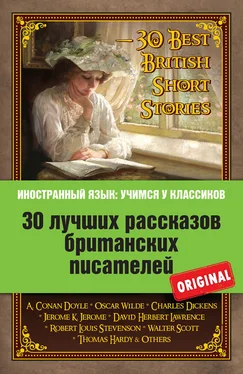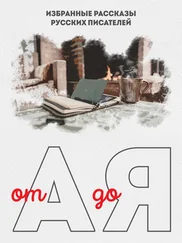‘Master Paul!’ he whispered. ‘Master Paul! Malabar came in first all right, a clean win. I did as you told me. You’ve made over seventy thousand pounds, you have; you’ve got over eighty thousand. Malabar came in all right, Master Paul.’
‘Malabar! Malabar! Did I say Malabar, mother? Did I say Malabar? Do you think I’m lucky, mother? I knew Malabar, didn’t I? Over eighty thousand pounds! I call that lucky, don’t you, mother? Over eighty thousand pounds! I knew, didn’t I know I knew? Malabar came in all right. If I ride my horse till I’m sure, then I tell you, Basset, you can go as high as you like. Did you go for all you were worth, Bassett?’
‘I went a thousand on it, Master Paul.’
‘I never told you, mother, that if I can ride my horse, and get there, then I’m absolutely sure – oh, absolutely! Mother, did I ever tell you? I am lucky!’
‘No, you never did,’ said the mother.
But the boy died in the night.
And even as he lay dead, his mother heard her brother’s voice saying to her: ‘My God, Hester, you’re eighty-odd thousand to the good, and a poor devil of a son to the bad. But, poor devil, poor devil, he’s best gone out of a life where he rides his rocking-horse to find a winner.’
Sheridan Le Fanu
The Dead Sexton
The sunsets were red, the nights were long, and the weather pleasantly frosty; and Christmas, the glorious herald of the New Year, was at hand, when an event – still recounted by winter firesides, with a horror made delightful by the mellowing influence of years – occurred in the beautiful little town of Golden Friars, and signalized, as the scene of its catastrophe, the old inn known throughout a wide region of the Northumbrian counties as the George and Dragon.
Toby Crooke, the sexton, was lying dead in the old coach-house in the inn yard. The body had been discovered, only half an hour before this story begins, under strange circumstances, and in a place where it might have lain the better part of a week undisturbed; and a dreadful suspicion astounded the village of Golden Friars.
A wintry sunset was glaring through a gorge of the western mountains, turning into fire the twigs of the leafless elms, and all the tiny blades of grass on the green by which the quaint little town is surrounded. It is built of light, grey stone, with steep gables and slender chimneys rising with airy lightness from the level sward by the margin of the beautiful lake, and backed by the grand amphitheatre of the fells at the other side, whose snowy peaks show faintly against the sky, tinged with the vaporous red of the western light. As you descend towards the margin of the lake, and see Golden Friars, its taper chimneys and slender gables, its curious old inn and gorgeous sign, and over all the graceful tower and spire of the ancient church, at this hour or by moonlight, in the solemn grandeur and stillness of the natural scenery that surrounds it, it stands before you like a fairy town.
Toby Crooke, the lank sexton, now fifty or upwards, had passed an hour or two with some village cronies, over a solemn pot of purl, in the kitchen of that cosy hostelry, the night before. He generally turned in there at about seven o’clock, and heard the news. This contented him: for he talked little, and looked always surly.
Many things are now raked up and talked over about him.
In early youth, he had been a bit of a scamp. He broke his indentures, and ran away from his master, the tanner of Bryemere; he had got into fifty bad scrapes and out again; and, just as the little world of Golden Friars had come to the conclusion that it would be well for all parties – except, perhaps, himself – and a happy riddance for his afflicted mother, if he were sunk, with a gross of quart pots about his neck, in the bottom of the lake in which the grey gables, the elms, and the towering fells of Golden Friars are mirrored, he suddenly returned, a reformed man at the ripe age of forty.
For twelve years he had disappeared, and no one knew what had become of him. Then, suddenly, as I say, he reappeared at Golden Friars – a very black and silent man, sedate and orderly. His mother was dead and buried; but the ‘prodigal son’ was received good-naturedly. The good vicar, Doctor Jenner, reported to his wife:
‘His hard heart has been softened, dear Dolly. I saw him dry his eyes, poor fellow, at the sermon yesterday.’
‘I don’t wonder, Hugh darling. I know the part – “There is joy in Heaven.” I am sure it was – wasn’t it? It was quite beautiful. I almost cried myself.’
The Vicar laughed gently, and stooped over her chair and kissed her, and patted her cheek fondly.
‘You think too well of your old man’s sermons,’ he said. ‘I preach, you see, Dolly, very much to the poor . If they understand me, I am pretty sure everyone else must; and I think that my simple style goes more home to both feelings and conscience–’
‘You ought to have told me of his crying before. You are so eloquent,’ exclaimed Dolly Jenner. ‘No one preaches like my man. I have never heard such sermons.’
Not many, we may be sure; for the good lady had not heard more than six from any other divine for the last twenty years.
The personages of Golden Friars talked Toby Crooke over on his return. Doctor Lincote said:
‘He must have led a hard life; he had dried in so, and got a good deal of hard muscle; and he rather fancied he had been soldiering – he stood like a soldier; and the mark over his right eye looked like a gunshot.’
People might wonder how he could have survived a gunshot over the eye; but was not Lincote a doctor – and an army doctor to boot – when he was young; and who, in Golden Friars, could dispute with him on points of surgery? And I believe the truth is, that this mark had been really made by a pistol bullet.
Mr. Jarlcot, the attorney, would ‘go bail’ he had picked up some sense in his travels; and honest Turnbull, the host of the George and Dragon, said heartily:
‘We must look out something for him to put his hand to. Now’s the time to make a man of him.’
The end of it was that he became, among other things, the sexton of Golden Friars.
He was a punctual sexton. He meddled with no other person’s business; but he was a silent man, and by no means popular. He was reserved in company; and he used to walk alone by the shore of the lake, while other fellows played at fives or skittles; and when he visited the kitchen of the George, he had his liquor to himself, and in the midst of the general talk was a saturnine listener. There was something sinister in this man’s face; and when things went wrong with him, he could look dangerous enough.
There were whispered stories in Golden Friars about Toby Crooke. Nobody could say how they got there. Nothing is more mysterious than the spread of rumour. It is like a vial poured on the air. It travels, like an epidemic, on the sightless currents of the atmosphere, or by the laws of a telluric influence equally intangible. These stories treated, though darkly, of the long period of his absence from his native village; but they took no well-defined shape, and no one could refer them to any authentic source.
The Vicar’s charity was of the kind that thinketh no evil; and in such cases he always insisted on proof. Crooke was, of course, undisturbed in his office.
On the evening before the tragedy came to light – trifles are always remembered after the catastrophe – a boy, returning along the margin of the mere, passed him by seated on a prostrate trunk of a tree, under the ‘bield’ of a rock, counting silver money. His lean body and limbs were bent together, his knees were up to his chin, and his long fingers were telling the coins over hurriedly in the hollow of his other hand. He glanced at the boy, as the old English saying is, like ‘the devil looking over Lincoln.’ But a black and sour look from Mr. Crooke, who never had a smile for a child nor a greeting for a wayfarer, was nothing strange.
Читать дальше
Конец ознакомительного отрывка
Купить книгу












